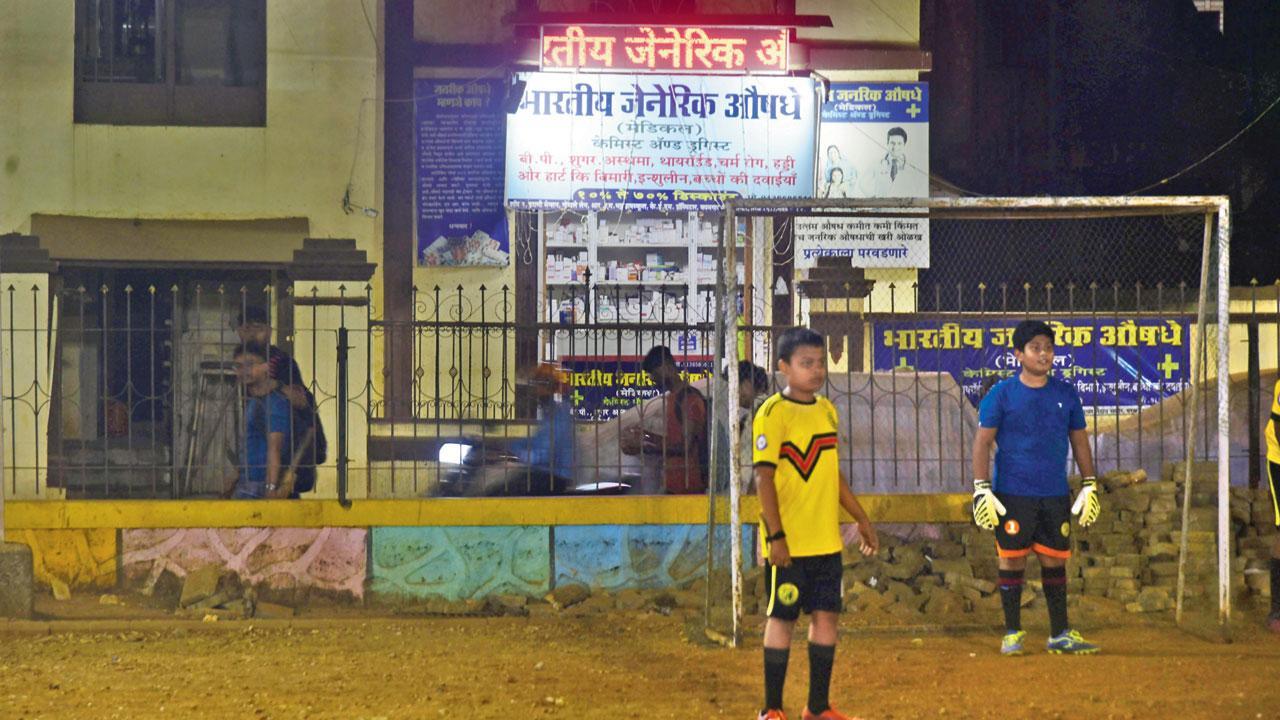Additional Municipal Commissioner Sudhakar Shinde told mid-day it was supposed to be submitted by last Saturday

A medical shop in front of KEM hospital in Parel on February 23. Pic/Atul Kamble
In early August, the health administration of the Brihanmumbai Municipal Corporation (BMC) decided to tackle a long-standing issue: the expenses incurred by civic hospital patients when purchasing prescribed medicines from private medical shops. Almost a month after the announcement, the issue is likely to be partially resolved by next week.
BMC-run hospitals are supplied medicines and other necessary equipment by the Central Purchasing Department (CPD), according to an existing list approved by civic officials, known as the scheduled list. There are twelve schedules, and each one includes a variety of items, such as injections, tablets, ointments, cancer medicines, etc. In total, all schedules cover around 1,779 items.
The plan was to revise these schedules in consultation with deans of all the medical colleges under it, who would consult all the department heads and prepare a comprehensive list of medicines prescribed to patients that they have to purchase from elsewhere. Additional Municipal Commissioner Sudhakar Shinde told mid-day that the list was supposed to be submitted by last Saturday. However, days later, the AMC said he is still “chasing” the hospitals to provide him with the same.
Providing additional details, the dean of one of the four medical college hospitals said the list is being prepared by the pharmacology departments of all four civic hospitals. “They are streamlining the details like the type of medicines required on an urgent basis. There was a meeting held by the departments on Tuesday as well. The process will likely be completed in another week, and a new list will be released. After that, the tendering process will take place at the CPD level,” the dean said.
Also read: Mumbai: Residents take to streets to protest idol immersion ban in Aarey
Malaria, dengue cases up
Meanwhile, in the first three days of September, 57 malaria cases, 14 leptospirosis cases, 32 dengue cases, 74 gastroenteritis cases, 13 hepatitis cases, three chikungunya cases and one H1N1 case were reported in the city. On the other hand, August concluded with high numbers reported in all categories, with a notable increase in malaria (1,080 cases), dengue (999 cases) and chikungunya (35 cases, 27 in July, and eight in June).
“There is a slight rise in the cases of malaria, dengue and chikungunya in August as compared to July. The rise is due to intermittent rainfall, providing favourable breeding conditions for aedes mosquitoes, which are responsible for the transmission of dengue and chikungunya. Hence citizens are appealed to be watchful of aedes mosquitoes breeding in their own households, premises, societies, and workplaces,” the BMC’s health department said in a press note.
 Subscribe today by clicking the link and stay updated with the latest news!" Click here!
Subscribe today by clicking the link and stay updated with the latest news!" Click here!










